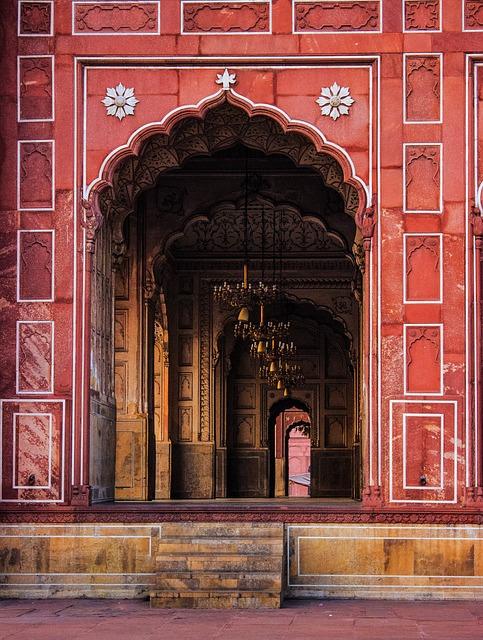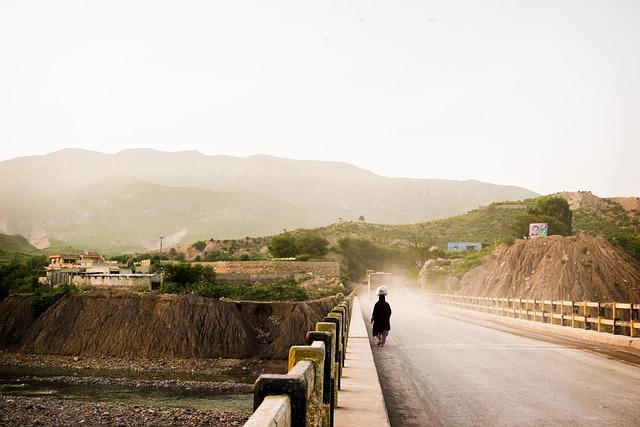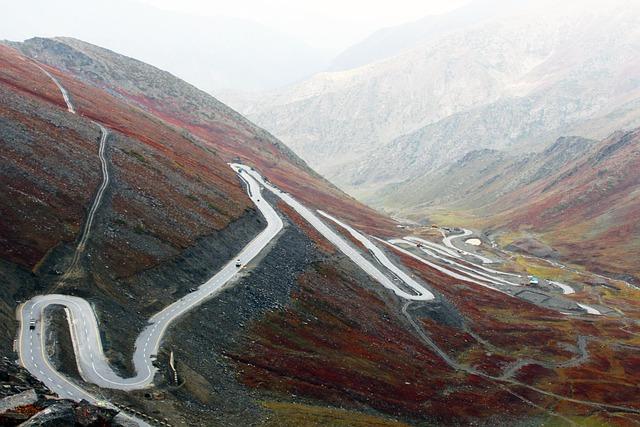In the intricate tapestry of global politics, certain nations emerge as pivotal players, weaving together economic, diplomatic, and cultural threads that influence the stability and direction of international relations. Among them, Pakistan occupies a nuanced and strategic position. Nestled at the crossroads of South Asia, the Middle East, and Central Asia, this nation is more than just a geographical bridge; it is a dynamic force that shapes the contours of geopolitical discourse. From its relationships with neighboring India and China to its role in counter-terrorism efforts and its burgeoning ties with the United States and the Gulf states, Pakistan’s actions resonate far beyond its borders. As the world grapples with shifting power dynamics, understanding Pakistan’s strategic role becomes essential for comprehending the complexities of contemporary international relations. In this article, we will delve into the historical context, key alliances, and emerging challenges that define Pakistan’s influential presence on the global stage.
Pakistans Geopolitical Significance and Its Impact on Regional Stability
Pakistan occupies a crucial geographical position at the crossroads of South Asia, Central Asia, and the Middle East. Its proximity to significant players like India, China, Iran, and Afghanistan has made it a focal point in international relations. The country serves as a bridge for trade and energy routes, particularly with the China-Pakistan Economic Corridor (CPEC), which is a part of China’s Belt and Road Initiative. This corridor not only enhances economic ties but also strengthens Pakistan’s strategic partnerships, creating a dynamic that impacts regional power distributions.
The multifaceted challenges within the region, including terrorism, sectarian conflicts, and geopolitical rivalries, have placed Pakistan in a position where its stability is intrinsically linked to broader regional security. Key factors contributing to this landscape include:
- Military Alliances: Pakistan’s long-standing military relationship with the United States and developing ties with China shapes strategic calculations.
- Geo-Economic Situations: The rise of Central Asia as a player in the global oil and gas market further positions Pakistan as a critical player.
- Cultural and Religious Dynamics: Ethnic diversity and historical ties to neighboring countries make Pakistan a cultural mosaic influencing regional cohesion.

Navigating Major Power Dynamics: Pakistans Position in the China-United States Rivalry
As tensions between China and the United States continue to escalate, Pakistan finds itself at a geopolitically significant crossroads. The country’s historical ties with China, underscored by the China-Pakistan Economic Corridor (CPEC), enhance Beijing’s strategic influence in South Asia. This relationship not only includes significant economic investments but also extends to military cooperation and shared political interests. Meanwhile, the Pak-US relationship, though historically tied, has become increasingly complex with American interests shifting towards India as a counterbalance to China’s rise. This evolving dynamic places Pakistan in a position where it must navigate the intricacies of aligning with its long-time ally while addressing its own national interests in a changing global order.
Given this delicate balancing act, Pakistan must leverage its strategic geographical position to enhance its role as a mediator in regional conflicts and a facilitator of dialogue between the two superpowers. Factors that contribute to Pakistan’s unique position include:
- Geopolitical location: Pakistan serves as a land bridge between Central Asia and the Indian Ocean, vital for trade routes.
- Military alliances: Continual military cooperation with both nations can foster a unique stance that promotes stability.
- Economic partnerships: Active engagement in regional development initiatives can make Pakistan an attractive partner for both superpowers.
As the rivalry deepens, the potential for Pakistan to emerge as a crucial player in shaping not just regional but also global international relations is undeniable. By positioning itself strategically and diplomatically, Pakistan can aim to capitalize on the changing tides of global power structures.

Harnessing Economic Corridors: Pathways to Enhanced Diplomatic Engagement
Pakistan stands at a pivotal juncture, leveraging its geographical position to develop economic corridors that not only foster trade but also enhance diplomatic relationships. These corridors facilitate increased connectivity among nations and promote shared economic goals. By investing in infrastructure projects such as the China-Pakistan Economic Corridor (CPEC), Pakistan is establishing itself as a crucial conduit for regional trade routes that span from the East to the West. This investment is a testament to its commitment towards collaborative economic growth, emphasizing mutual benefits over unilateral gains and ensuring that all stakeholders find value in the endeavor.
Moreover, the expansion of these economic corridors serves as a platform for Pakistan to engage in multilateral diplomacy, creating avenues for dialogue and cooperation among various nations. These corridors act as hubs for cultural exchange, technology transfer, and joint ventures, thus deepening ties beyond mere economic interests. By hosting international forums and summits along these routes, Pakistan can showcase its role as a mediator and a facilitator in global conversations. This dynamic environment cultivates a sense of trust and partnership, positioning Pakistan as a vital player in an interconnected world where economic stability is inextricably linked to peace and diplomatic engagement.
| Economic Corridors | Key Benefits |
|---|---|
| China-Pakistan Economic Corridor (CPEC) | Boosts trade, enhances energy security, promotes regional stability |
| China-Myanmar Economic Corridor | Improves connectivity, fosters development in underdeveloped areas |
| Trans-Afghan Pipeline | Facilitates energy trade, strengthens ties with Central Asia |

Strengthening Multilateralism: Pakistans Role in Global Governance and Peacekeeping Initiatives
Pakistan has consistently demonstrated a commitment to multilateralism as a cornerstone of its foreign policy, recognizing that global challenges necessitate cooperative solutions. Through active participation in various international organizations, including the United Nations, the Organization of Islamic Cooperation, and the South Asian Association for Regional Cooperation, Pakistan has sought to advocate for peace, stability, and sustainable development. Its engagement in peacekeeping initiatives underscores its dedication, with Pakistani troops serving in numerous missions around the world, contributing to enhanced security and humanitarian support in conflict-affected regions.
Moreover, Pakistan’s strategic role extends to fostering dialogue and cooperation on pressing global issues such as climate change, economic inequality, and counter-terrorism. By championing the causes of developing nations, Pakistan aims to amplify their voices on international platforms. The country is particularly focused on enhancing security cooperation through regional partnerships and collaborative frameworks, illustrating its belief that sustainable peace is achieved through shared responsibility and mutual respect. Key initiatives include:
- Facilitation of Peace Talks: Promoting dialogue between conflicting parties to achieve lasting solutions.
- Support for Humanitarian Efforts: Engaging in initiatives that provide relief to those in crisis.
- Advocacy for Climate Action: Standing up for developing countries in the fight against climate change.
To Conclude
In a world increasingly defined by interdependence and geopolitical complexity, Pakistan stands at a pivotal crossroads. The nation’s strategic position, shaped by its geographic location and nuanced alliances, offers both challenges and opportunities on the global stage. As we reflect on Pakistan’s role in international relations, it becomes clear that its influence extends beyond mere borders; it resonates through the corridors of diplomacy, trade, and security partnerships.
The unfolding narrative of Pakistan as a key player in shaping international relations invites us to reconsider the traditional paradigms of power and balance. As the dynamics of global politics evolve, so too will Pakistan’s strategies and contributions. The ongoing commitment to fostering regional stability, engaging with diverse international partners, and navigating complex challenges showcases not just the depth of its diplomacy, but also the resilience of its aspirations.
As we look ahead, it is evident that Pakistan’s journey in the realm of international affairs will remain a crucial element in the evolving matrix of global relations. The choices made today will echo in the corridors of power for generations to come, reminding us that in the dance of diplomacy, every nation plays a vital role. In understanding Pakistan’s strategic importance, we find not only insights into its future but also reflections on the broader tapestry of international engagement in our interconnected world.



